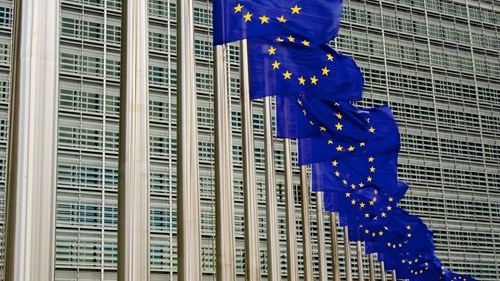No-deal Brexit – implications and administrative preparations by Germany and the EU
The United Kingdom of Great Britain and Northern Ireland (UK) is now set to leave the European Union (EU) on or before 31 January 2020. Despite the recently enacted ‘Benn Bill’ by the British legislature, and due to questions regarding the current draft of the Withdrawal Agreement, it still cannot be completely ruled out at this stage that an unregulated withdrawal of the UK from the EU (‘no-deal Brexit’) will take place. There is, to date, no clearly defined post-Brexit scenario for businesses to prepare for.
This article provides a short, non-exhaustive overview of a no-deal Brexit’s implications on key legal areas and industries. Where applicable, it will focus on and briefly explain the regulatory and non-regulatory measures taken by the German government and the EU to prepare for an unregulated withdrawal. The German government alone has put in place more than fifty such measures which – in particular the legislative acts – are clear in their conceptual approach; they are designed as unilateral, temporary emergency measures, aiming to cushion undue hardship in certain narrowly defined cases to deflect disadvantages for German and/or EU 27 nationals and companies. Their idea is also to clearly delineate the difference between EU membership and non-membership. The accompanying emergency measures at EU level follow the same conceptual approach.
Overview
Key legal areas
Corporate Law
A no-deal Brexit affects companies with a British legal form that operate in Germany. They could no longer link the use of such a form to the EU freedom of establishment, with the consequence that they would be treated as one of the ‘fallback’ legal entities under German Law, i.e. the general partnership under the German Commercial Code (‘OHG’) or the general private partnership (‘GbR’). This would cause substantial liability risks for individual shareholders. A legislative amendment to the German Transformation Act (‘Umwandlungsgesetz, UmwG’) allows shareholders to avoid this risk by facilitating the ‘switch’ from a UK legal form to a German (limited liability) form. The Act achieves this by – among other things – extending the personal and spatial scope of what can be treated as a ‘cross-border merger’ within the meaning of section 122a et seq. of the UmwG.
Tax
The tax law-related consequences of a no-deal Brexit cannot be fully depicted here. Noteworthy are the basic safeguards against tax-related disadvantages arising solely as a consequence of Brexit put in place by the German legislature. The ‘Tax Act relating to Brexit ’(‘Brexit-StBG’) amends section 22 (1) and (2) of the German Reorganisation Tax Act (‘Umwandlungssteuergesetz’) to prevent the retroactive taxation of profits from contributions in cases where parts of a company or shares were transferred by a British tax-payer or by a British corporation below fair market value prior to the withdrawal date. Section 4g of the ‘Income Tax Act’ (‘Einkommensteuergesetz’) was amended to preserve the possibility to spread the taxation of hidden reserves triggered by the transfer of an asset to a British permanent establishment over a maximum period of five years. An amendment of section 6b (2a) of the Income Tax Act avoids mandatory interest payments in cases where the payment of taxes for replacement purchases can be made in instalments. The Act also orders that – notwithstanding any subsequent relocation of the registered office or any individual migration – Brexit by itself does not trigger the legal consequences of either section 12 (3) of the German Corporation Tax Act (‘Körperschaftssteuergesetz’) for corporations or section 6 (5) sentence four of the Foreign Tax Act (‘Außensteuergesetz’) for individuals, which would otherwise lead to UK corporations being deemed dissolved or to the compulsory withdrawal of a deferral for exit tax in case of individuals. Nine hundred new employment posts are to be created in the Ministry of Finance regarding the prospect of a no-deal Brexit. On its webpage, the EU Commission provides a noteworthy preparedness notice on Tax, Trade and Customs Union.
Immigration /cross-border posting of employees
An unregulated withdrawal would lead to many UK nationals and their families residing in Germany requiring a residence permit. To address this, the German Government approved the ‘Brexit Residence Transition Act’ (‘Brexit-Aufenthalts-Überleitungsgesetz’). The bill has not yet entered into force and is currently to be discussed by the Bundesrat. It ensures that all UK nationals and their families residing in Germany under EU free movement rules at the time of withdrawal can receive a residence permit. These UK citizens will also be exempted from the requirement to hold a residence permit for a minimum transitional period of three months before the end of which they must have applied for continuing residency. The bill also creates the framework for access of UK nationals to the German labour market through an amendment of the relevant non-legislative instrument (the German Employment Regulation, ‘Beschäftigungsverordnung’). The interior ministries of each German state will provide additional financial and personal resources to tackle the administrative challenges that will arise during the transition period.
Regarding the cross-border posting of employees from Germany or any other EU Member State to the UK, the EU freedom to provide services and the relevant EU legislation – including the EU Posting of Workers Directive 96/71/EC – would no longer be directly applicable in the UK. The conditions under which workers can be posted will depend on the legal situation in the UK.
Data Protection
In the event of an unregulated withdrawal, the transfer of data from the EU to the UK will be governed by the rules of the General Data Protection Regulation (EU) 2016/679 (‘GDPR’) regarding the transfer of data to third countries. The transfer could take place if an adequacy decision according to Article 45 GDPR prior to the withdrawal date was reached, but this seems very unlikely at present. Data transfer would thus only be possible according to Article 46 and 47 GDPR if ‘appropriate safeguards’ for the personal data are provided. If none of the aforementioned mechanisms is applied, Article 49 GDPR sets out alternative possible conditions under which data could be transferred, including explicit consent by the person concerned or the transfer being necessary for the performance of a contract between the individual concerned and the data processing entity.
Competition Law
A no-deal Brexit will raise many legal questions in the field of competition law. Only an outline in principle of the main consequences can be given here. From within the EU merger control rules, especially the ‘one-stop shop’ system regarding merger notifications under Regulation (EC) 139/2004 will no longer apply to the UK, so that an additional merger in the UK might be necessary. The EU provisions on state aid law will also cease to apply and by replaced by WTO rules when an aid is granted by UK authorities. Should the aid be granted by German authorities to UK based companies, EU state aid law will continue to apply if the aid has an impact on competition in the EU market. Violations of European antitrust law by UK companies, causing disruptive effects on competition in the EU internal market, will still fall under the European Commission’s jurisdiction as sanctions in this field can be imposed regardless of the state in which the violating company has its seat.
Trademarks and patents
An unregulated withdrawal will also have a significant impact on the holders of EU trademarks and registered Community designs that operate in the UK, as those trademarks and designs will – although remaining valid in the EU 27 – lose their validity in the UK. All holders of such rights will have to obtain an equivalent British trademark or design for protection in the UK. All existing seniority claims in EU trademarks based on national trademark rights in the UK will also cease to have effect in the EU. Furthermore, all entities sitting in the UK will have to be represented before the European Union Intellectual Property office in almost all proceedings provided for in the relevant EU legislation. By contrast, a no-deal Brexit will have no consequences for European patents as the underlying European Patent Convention applies irrespective of membership of the EU.
Key industries
Logistics - customs
In the event of a no-deal Brexit, trade and customs relations between the EU and the UK will be exclusively based on WTO rules for third countries. This will affect all areas regarding import, export, re-export and transit procedures. Customs formalities will need to be observed and import duties/customs controls will be in force. All goods on either side of the EU and the UK will have to go through different customs clearing procedures depending on their ultimate economic purpose and destination. Significant implications will occur regarding the process of determining the origin of goods and the issuing of preference documents and/or certificates . Among other things, EU businesses must consider whether imported goods are subject to excise duty (e.g. energy products, alcohol and tobacco), import VAT must be paid or whether prohibitions or restrictions on the import of the particular good apply. Businesses also need to check whether origin calculations, delivery chains or existing authorisations need to be amended or adapted. New customs authorisations might have to be applied for. All economic operators exporting or importing from or into the UK and/or the EU should register with the customs authorities and be allocated an Economic Operators’ Registration and Identification (EORI) number. Communication with customs authorities will work through ATLAS, an IT system that requires registration and certified software. Declarants must generally be established in the EU, but customs formalities may be taken care of by a representative. In Germany, the creation of about 900 new permanent employment posts for customs administration has been approved by the government to tackle the additional challenges of a no-deal Brexit.
Logistics - transport
Effective cross-border transport of goods providing a sufficient supply for consumers and that allows businesses to operate economically relies heavily on frictionless trade. This is critically endangered by a no-deal Brexit; especially in fields where supply chains are highly regulated (as is for example the case for medicinal products and devices, as noted by sections three and six of the UK government’s subpoenaed “Yellowhammer” documents.) In the transport sector, the most relevant contingency measures granting rights to UK operators were adopted at EU level. The Regulations provide for sanctions to be imposed by the EU Commission should the UK fail to grant equal rights or non-discriminatory competitive circumstances to EU 27 operators. Emergency EU Regulation No. 2019/502 grants basic air traffic rights until 30 March 2020 to UK-based air carriers, including the right to perform international air transport services for passengers and/or cargo between the EU and the UK. Flights within the EU and/or from the EU to any third country are not covered by the Regulation. EU Regulation No. 2019/503 on railway connectivity provides a safety-net in particular for railway undertakings in the UK that operate cross-border railway infrastructure. It ensures the continuing validity of safety certificates, safety authorisations and train driver licences for an interim period of nine months. The aim is to give businesses enough time to have these documents reissued in an EU Member State. Emergency EU Regulation No. 2019/501 grants UK road haulage operators access to the EU market until 31 December 2019. For the time after, recourse might have to be taken to the ECMT-licence system.
Trade - conformity-assessed products
Businesses who want to place products whose lawful marketing requires a conformity assessment procedure on the EU market (e.g. medicinal devices), must note that former British ‘Notified Bodies’ within the meaning of the relevant EU product legislation will not retain that status and can therefore no longer issue the required certificates to obtain a ‘CE marking’. Manufacturers of such products are under the obligation to seek a Notified Body within the EU and, where necessary, an authorised representative. Up to this date, there is no joint procedure in place on a national or EU level for dealing with manufacturers and products that have been granted certificates by a British ‘Notified Body.’
Financial markets and insurances
Given a no-deal Brexit’s potentially grave impact on the stability of financial markets or for insurance policy holders, the German Tax Act relating to Brexit (see above) delegates to the German Federal Financial Supervisory Authority (‘BaFin’) the authority to allow UK companies in the banking, financial service and insurance sector to continue carrying out cross-border operations in Germany for a maximum period of 21 months. The exact modalities of the alleviation measures will be determined by BaFin. Accompanying EU Decisions and Regulations ensure that there will be no disruption in central clearing of derivatives and no disruption in services provided by UK central securities depositories. The Regulations also enable a facilitated novation of certain over-the-counter derivatives contracts with a counterparty established in the UK. The German government recently initiated further legislative proceedings to amend section 32 (1a) of the German Banking Act (‘Kreditwesengesetz’), exempting from an authorisation requirement the conduct of cross-border proprietary business by third country companies, if they operate as a stock exchange member or through a trading venue within the meaning of Directive 2014/65/EU. The Tax Act relating to Brexit further amends section 66a (1) of the Insurance Supervision Act (‘Versicherungsaufsichtsgesetz’), allowing for interim measures to be introduced to protect policyholders and beneficiaries of insurance benefits. This enables the winding up of insurance contracts concluded before withdrawal date. More provisions are put in place to minimise risks to ‘major financial institutions’ (section 25n (1) of the German Banking Act; the request to (via court order) terminate the employment of a highly paid risk taker employed by such an institution no longer requires a justifying reason under section 9 of the German Dismissal Protection Act (‘Kündigungsschutzgesetz’). Further amendments of the Pfandbrief Act (‘Pfandbriefgesetz’) and the Building and Loan Associations Act (‘Bausparkassengesetz’) provide comprehensive grandfathering for claims secured by UK assets prior to Brexit and for existing investments in the UK as well as for the enforcement of claims secured by mortgages on UK properties.
The law on securities prospectuses is not affected by the above mentioned emergency legislation. The specific consequences of a no-deal Brexit in this area are difficult to predict. On its website, BaFin provides information – among other things – on the implications on the cross-border validity of approved securities prospectuses and the status of the UK as a ‘home Member State’ within the meaning of Article 2 (m) of Regulation (EU) 2017 /1129.
Chemical and medicinal products
UK-based companies who supply chemical products to EU 27 based customers and who have registered these products with the European Chemicals Agency (‘ECHA’) according to Regulation (EC) 1907/2006 (‘REACH’) could no longer be a registrant within the meaning of this regulation. Consequently, the customers of such UK-based companies will need to register the respective substance themselves or the company would have to appoint an ‘Only Representative’ in the EU (or relocate to the EU). To answer key questions, the German Federal Institute for Occupational Safety and Health provides a REACH-CLP-biocide helpdesk and ECHA has an English FAQ page.
Regarding medicinal products, the UK agencies for human and veterinary medicines (MHRA and VMD) will presumably be no longer available for the licensing procedures needed to lawfully market medicinal products in the EU. Maintaining availability for patients and the avoidance of bottlenecks in the EU regulatory networks are priorities for the German licencing authorities who will increase their stuff to assume former UK procedures. UK companies should initiate the procedure to transfer an existing authorisation to a ‘Reference Member State’ (‘RMS switch’) within the meaning of the underlying EU mutual recognition rules as soon as possible in the hope that the transfer is completed before the withdrawal date.
Summary
A no-deal Brexit will undoubtedly provide many more immediate legal and economic challenges for businesses than those mentioned in this overview. The national and EU level contingency measures presented deal in particular with the EU internal market’s fundamental free movement provisions on goods, services, capital and workers. Given that most measures are temporary in nature and only provide basic safeguards, it is important that businesses keep planning ahead and evaluate what steps they can take themselves to alleviate the impacts that stem from the reality of a no-deal Brexit.
Spotlight: Brexit:
Follow Brexit news channel for the latest developments and news.
Contact
Share
Well
informed
Subscribe to our newsletter now to stay up to date on the latest developments.
Subscribe now








